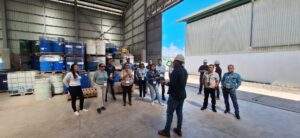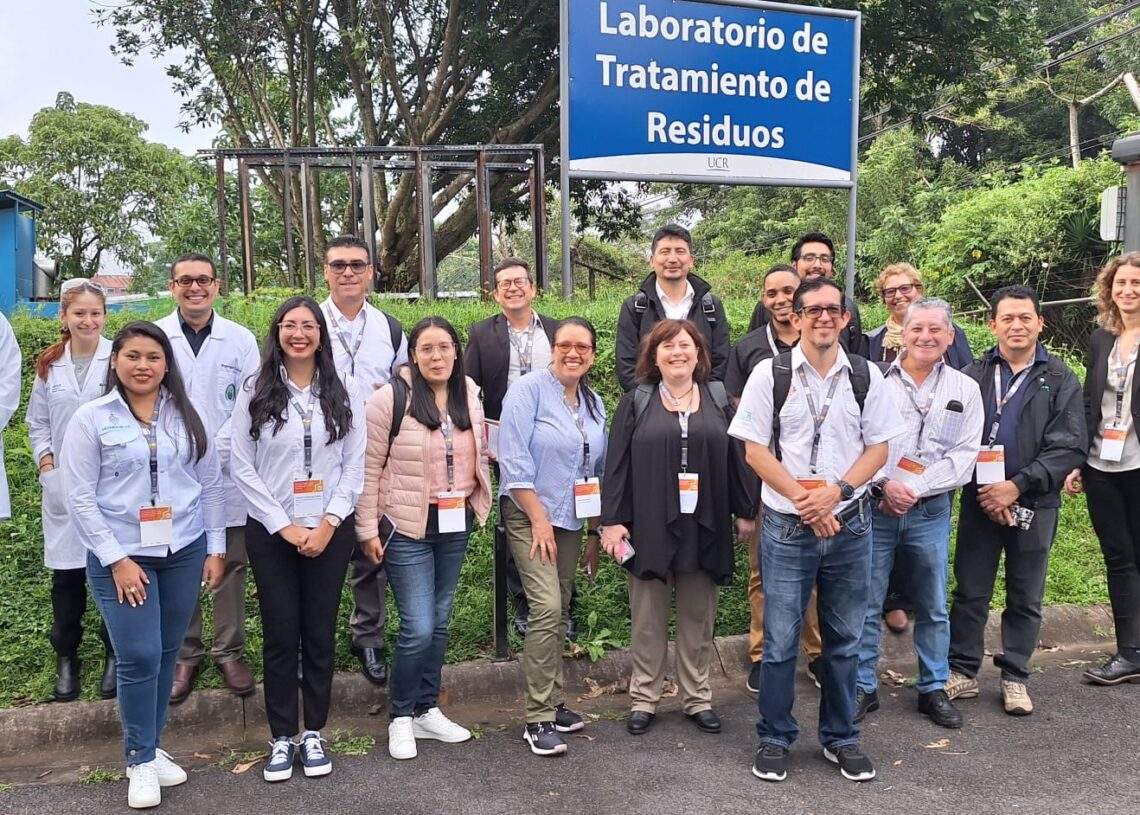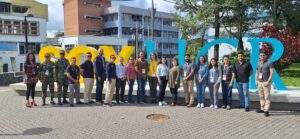Officials from Bolivia, Colombia, Ecuador, El Salvador, Honduras, Paraguay and the Dominican Republic have learned this week about Costa Rica’s experience in different mechanisms for the handling, transport, storage, management and final disposal of chemical substances seized for the production of narcotic drugs and psychotropic substances.
The European COPOLAD III Programme and the Chemical Regency Unit of the University of Costa Rica, with the support of the Spanish Centre for Intelligence against Terrorism and Organised Crime (CITCO), have organised this meeting to exchange experiences and knowledge that will help to promote and encourage good practices in the management and final disposal of chemical precursors, through the use of methods that reduce and/or eliminate risks to personal safety, health and the environment.
The importance of these precursors in the fight against drug trafficking is based on the fact that in the manufacture of most drugs, whether plant-based or synthetic, chemicals (precursors) are needed. Precursors are therefore one of the elements necessary for the clandestine manufacture of plant-based drugs and are indispensable components in the illicit manufacture of synthetic drugs.
European support
COPOLAD III is a cooperation programme, financed by the European Union, which accompanies Latin American and Caribbean countries in improving their drug policies. ‘As part of the progress achieved in the previous phases, COPOLAD III will continue to promote the strengthening of technical cooperation and foster political dialogue between Latin America, the Caribbean and the European Union. This effort aims to support the region in the implementation of more effective drug policies, oriented to generate positive and sustainable impacts on people’s lives, with a particular focus on the most vulnerable populations,’ explained Matteo Banti, Head of Cooperation of the European Union in Costa Rica.
Within this framework, COPOLAD III has promoted technical assistance to accompany the seven countries that have requested it and to improve the methods of management and final disposal of seized precursors and chemical substances. To this end, the Programme has developed a technical diagnosis for each participating country that includes an analysis of the normative and regulatory framework, institutional mapping and statistical information on precursors. Based on this initial diagnosis, manuals have been drafted in accordance with the reality of each of the countries, so that all the authorities involved in the process are aware of the best practices for the management and final disposal of precursors, resources are optimised, inter-institutional coordination is promoted and national drug policies are strengthened. All of this is accompanied by specific training to know, understand and use the manuals developed in the most effective way.

The conference concluded with a very positive outlook on the importance of the manuals in establishing procedures in each country. Furthermore, training on these manuals was highlighted as a key milestone for the participating institutions and for all the actors involved in the process (police, judges, prosecutors, customs personnel, local governments, etc.). This training will enable all the professionals involved in the chain of management and final disposal of chemical precursors to coordinate their work and to know what each part of the process involves and what is the best way to proceed in each case.
COPOLAD’s work in this area
The COPOLAD III Programme works on three actions to control chemical precursors:
- Management and disposal of precursors and chemicals
- Regulatory development
- Information technology development
The visit to Costa Rica is part of the line of management and final disposal of precursors and chemical substances in which COPOLAD is working with Bolivia, Colombia, Ecuador, El Salvador, Honduras, Paraguay and the Dominican Republic. The manuals planned for the seven countries will be completed by the end of 2024. Training on these manuals is planned for the first half of 2025.
In terms of regulatory development, COPOLAD is working with Honduras, the Dominican Republic, Colombia, Saint Lucia and Antigua and Barbuda to promote regulatory reforms aimed at improving legal tools and comprehensively managing the chain of custody and final disposal of precursors.
In addition, COPOLAD supports Ecuador in the development of an IT tool that facilitates effective and traceable control of precursor transactions in real time. The country has a basic computer system that issues permits to operators to work with precursors, but does not allow for data entry and cross-checking of precursor transactions. In addition, this IT development will enable the Ecuadorian Ministry of Interior to detect in time a diversion of these precursors to drug production.
You can consult the complete fact sheet on precursor chemical control here.







